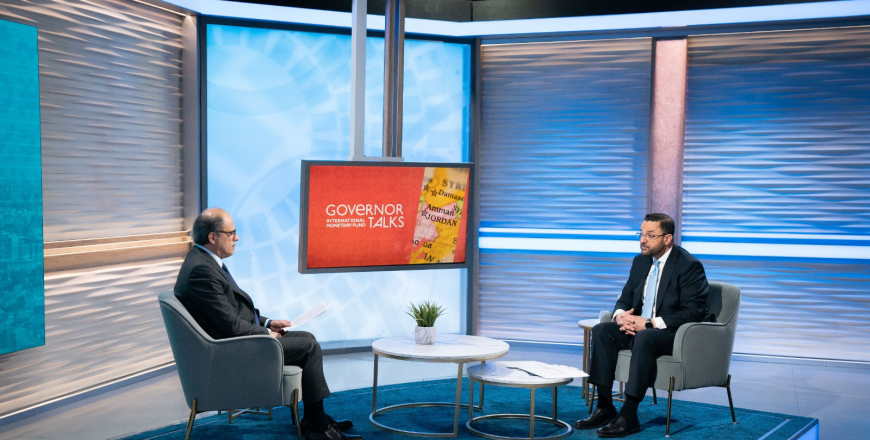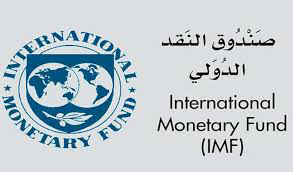You are here
Equitable tax treatment enabled Jordan to boost its domestic revenues without raising tax rates — Al-Ississ
By JT - Apr 21,2022 - Last updated at Apr 21,2022

Finance Minister Mohamad Al-Ississ during a Governor Talk event at this year’s Spring Meetings of the International Monetary Fund, hosted by Jihad Azour, director of the Middle East and Central Asia Department at the IMF, in Washington, DC, on Thursday (Photo courtesy of Finance Ministry)
AMMAN — In following more equitable tax treatment, Jordan was able to boost its domestic revenues without raising tax rates, Finance Minister Mohamad Al-Ississ said on Thursday.
“If history has taught us anything, it is that usually it is the most vulnerable who suffer in these circumstances, both at a country level and an individual level,” stated Al-Ississ to his audience at the International Monetary Fund in Washington, DC, according to a Finance Ministry statement.
“If the titanic continues to hit one iceberg after the other, people at some point will wake up and say, how come we did not see it before? They will ask, how come there were not enough life jackets on board? And we owe them an answer,” he said.
Al-Ississ was selected by the IMF to hold a Governor Talk at this year’s Spring Meetings, titled Great Expectations: Achieving Fiscal Discipline with Social Protection in Uncertain Times. The talk was hosted by Jihad Azour, director of the Middle East and Central Asia Department at the International Monetary Fund.
The finance minister credited the success of Jordan’s current IMF programme to an evidence-based approach based on self-diagnosis, citing “there is no alternative to a country owning what it wants to do”.
Al-Ississ provided the example of going after tax evasion during his tenure as minister of finance as a response to the population’s demands for “equitable tax treatment and for everybody to pay their fair share”, instead of raising tax rates as previous programmes. The result was that Jordan was been able to exceed the domestic revenue targeted specified in its 2021 General Budget.
When asked how Jordan has been able to maintain macro-stability, Al-Ississ described how Jordan has changed the way it gathers domestic revenue away from more regressive policies that had focused on cutting capital expenditures, raising indirect taxes and cutting subsidies. Instead, his current policy goes after tax evasion, avoidance, and smuggling.
However, on domestic circumstances and policies relating to youth, the minister described the demands of Jordan’s young population as unfilled and legitimate, saying “we managed to prevent against the worst, but in reality is our people have expectations that remain unmet."
Al-Ississ called on policymakers to steer course before leaving the youth with economies frayed with deep scarring, “so that this generation becomes the last generation in our region that lives a life of uncertainty and frustration”.
When discussing the Ukrainian war and its impact on the region, Al-Ississ remarked that Jordan has taken preemptive measures such as boosting strategic wheat and foreign reserves.
However, Al-Ississ encouraged international financial institutions (IFIs) and states to “rethink our policies in a way that ensures that there is trickle-down, that the most vulnerable are protected at the worst times of crisis”.
Al-Ississ called on IFIs to avoid building policies around large economies, instead focusing on building buffers and safety nets for the more vulnerable. He said, “our people back home are in the shade of policies that we make here in these meetings, the shade of the pandemic, the shade of war in Ukraine, and we must be cognizant of that as we make our policies.”
Related Articles
AMMAN — The key to improving economic conditions is to acknowledge the reality of the situation and gradually work towards reaching financia
AMMAN — The Senate’s Finance and Economy Committee on Monday discussed the budget, during a meeting headed by Senator Rajai Muasher an
AMMAN — Jordan has pursued proper fiscal policies that have contributed to maintaining financial stability despite global challenges, as the


















